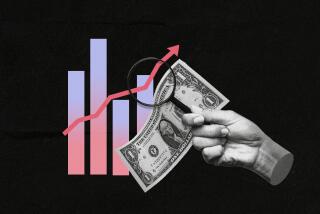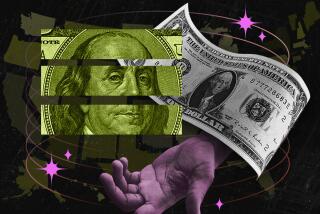Californians’ wealth took one of the biggest hits in the recession
- Share via
The federal government has for the first time detailed the sharp drop in wealth that the Great Recession caused American households — and it shows that families in California and other Western states took the biggest and broadest hits by far.
The average net worth of U.S. households — the value of their homes, stocks and all other assets — fell 20% to $481,000 by mid-2009 from $598,000 in mid-2007, according to a Federal Reserve survey released Thursday.
In the Western states, 67.5% of households saw their wealth drop, compared with 62.5% for the nation overall. The median decline in wealth for households in the West was 27.7%, well above the 18.1% national median and nearly triple the 9.5% decrease for families in the Northeast.
While it’s widely known that the recession slammed household wealth and that the housing market in the West took some of the hardest hits, the unusual Fed survey attempted to quantify the damage.
The central bank does a broad consumer finance survey of about 4,000 households every three years. But to gauge the effect of the recession, the Fed in mid-2009 began re-interviewing the same households it had surveyed in 2007.
The new data compare the state of those households just before the recession officially hit in December 2007 with how they were faring in the second half of 2009, after the recession technically ended and the economy began growing again.
Although about two-thirds of households saw their wealth fall, “a sizable fraction of households experienced gains in wealth, while some families’ financial situation changed little,” the Fed said in its 37-page report, titled “Surveying the Aftermath of the Storm: Changes in Family Finances from 2007 to 2009.”
Although overall wealth declined nationally, well-off families — those in the top quarter of net worth — saw their overall wealth increase by about 27%.
Still, the recession hit most households hard, leading to families in all income brackets to cut back spending so they would have “greater precautionary savings.”
That decline in spending “may act in some ways as a brake on reviving the economy in the short run,” the report said.
More to Read
Inside the business of entertainment
The Wide Shot brings you news, analysis and insights on everything from streaming wars to production — and what it all means for the future.
You may occasionally receive promotional content from the Los Angeles Times.











